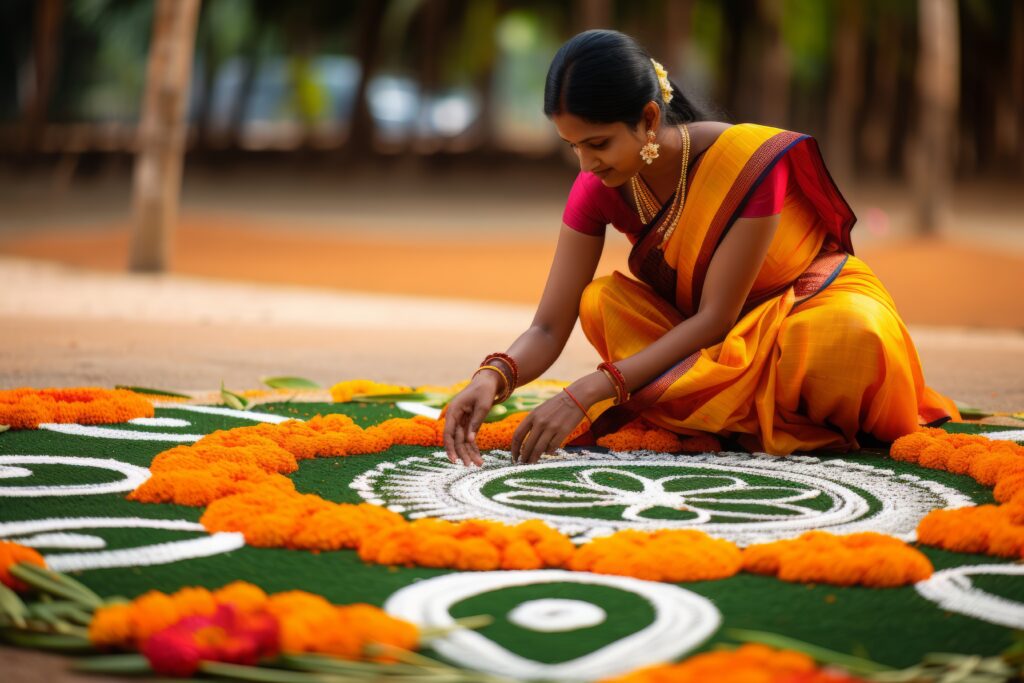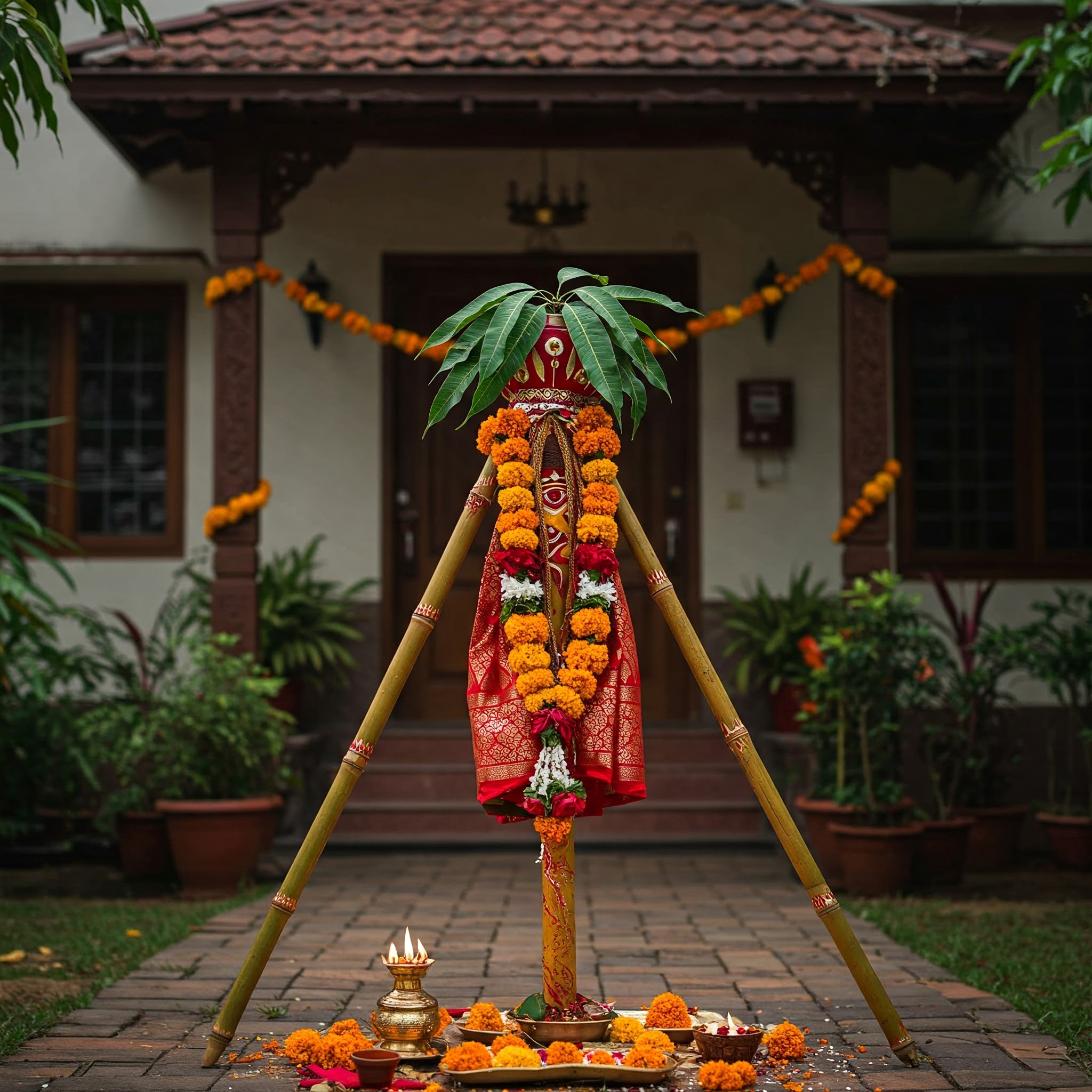Gudi Padwa is the start of a new year and one of the most significant festivals celebrated in Maharashtra and other parts of India. It marks the beginning of the traditional Hindu lunar calendar, signifying new beginnings, prosperity, and happiness. This festival is observed with grandeur and devotion, making it an essential part of Indian culture.

Origin and Significance of Gudi Padwa
The Mythological Importance
Gudi Padwa is deeply rooted in Hindu mythology. According to legends, this new year day marks the victory of Lord Rama over Ravana and his triumphant return to Ayodhya. Another belief associates this festival with the coronation of Chhatrapati Shivaji Maharaj, who established the Maratha Empire. Thus, the festival symbolises victory, prosperity, and the arrival of a new era.
The Unique Story Behind Gudi Padwa
One of the most fascinating stories behind Gudi Padwa is linked to the legend of Lord Brahma. According to Hindu scriptures, Lord Brahma created the universe on this day, making it the beginning of time itself. It is believed that after the great deluge, when the earth was submerged in water, Lord Brahma initiated the process of creation, bringing forth life and restoring order. This is why the day is also known as the start of a new cosmic cycle. Additionally, in Maharashtra, the Gudi (flag) is considered a symbol of victory, inspired by the great Maratha warriors who used to hoist victory flags after successful battles.

Astrological Significance
Gudi Padwa falls on the first day of Chaitra month as the start of the new year, according to the Hindu lunisolar calendar. This date coincides with the beginning of the spring season and is considered highly auspicious for starting new ventures.
How Gudi Padwa is celebrated?
1. Cleaning and Decoration of Homes
People begin the celebrations by cleaning their homes and decorating them with fresh flowers and traditional rangolis. This ritual signifies the removal of negativity and the welcoming of positivity.
2. Hoisting the Gudi
The most iconic part of Gudi Padwa is the hoisting of the ‘Gudi’ outside homes on the occasion of this Hindu new year. A gudi consists of a long bamboo stick adorned with a bright silk cloth, neem leaves, mango leaves, and a garland of flowers, with an inverted copper or silver pot placed on top. This Gudi is believed to ward off evil and bring good luck and prosperity.

3. Special Pujas and Offerings
Devotees perform special pujas and offer prayers to Lord Vishnu and Lord Brahma on this Hindu New Year. The festival is also linked to the creation of the universe by Lord Brahma, making it a sacred occasion.
4. Traditional Attire and festive processes
On this new year day, people dress in traditional attire, with women wearing vibrant sarees and men donning kurta pyjamas or dhotis. Cultural processions showcasing folk music and dance take place, adding joy to the celebration.
5. Delicious Festive Delicacies for New Year
Traditional cuisine is a must according to the festivals in India! Some traditional dishes prepared on Gudi Padwa include:
- Puran Poli – A roti filled with jaggery and lentils.
- Shrikhand and Poori – A yoghurt-based dessert served with fried bread.
- Kesari Bhaat – A saffron-infused sweet rice dish.
Regional Variations of Gudi Padwa
While Maharashtra celebrates Gudi Padwa with great enthusiasm, different states in India mark this occasion under various names:
- Ugadi – In Karnataka, Telangana, and Andhra Pradesh, it is celebrated as Ugadi with similar traditions.
- Chaitra Navratri – In North India, this marks the beginning of Chaitra Navratri, leading up to Ram Navami.
- Cheti Chand – The Sindhi community celebrates this day as Cheti Chand, honouring the birth of their patron saint, Jhulelal.
Symbolism of Gudi Padwa
Gudi Padwa is not just a festival; it embodies deep spiritual and cultural meanings.
- Gudi represents victory and prosperity.
- Neem leaves signify good health and purification.
- The festival marks new beginnings and fresh opportunities.
Modern-Day Relevance of Gudi Padwa
In today’s fast-paced world, Gudi Padwa serves as a reminder of our cultural roots and traditions. It brings families together, encourages new ventures, and promotes a sense of belonging and positivity.
With the rise of social media, the festival has gained global recognition, with people sharing their celebrations online, thus spreading awareness of India’s rich cultural heritage.

Conclusion
Gudi Padwa is more than just the start of a new year; it is a festival of hope, prosperity, and new beginnings. The traditions associated with this festival reflect the essence of Indian culture and spirituality, making it a cherished occasion for millions. By embracing the spirit of Gudi Padwa, we welcome positivity and prosperity into our lives.
